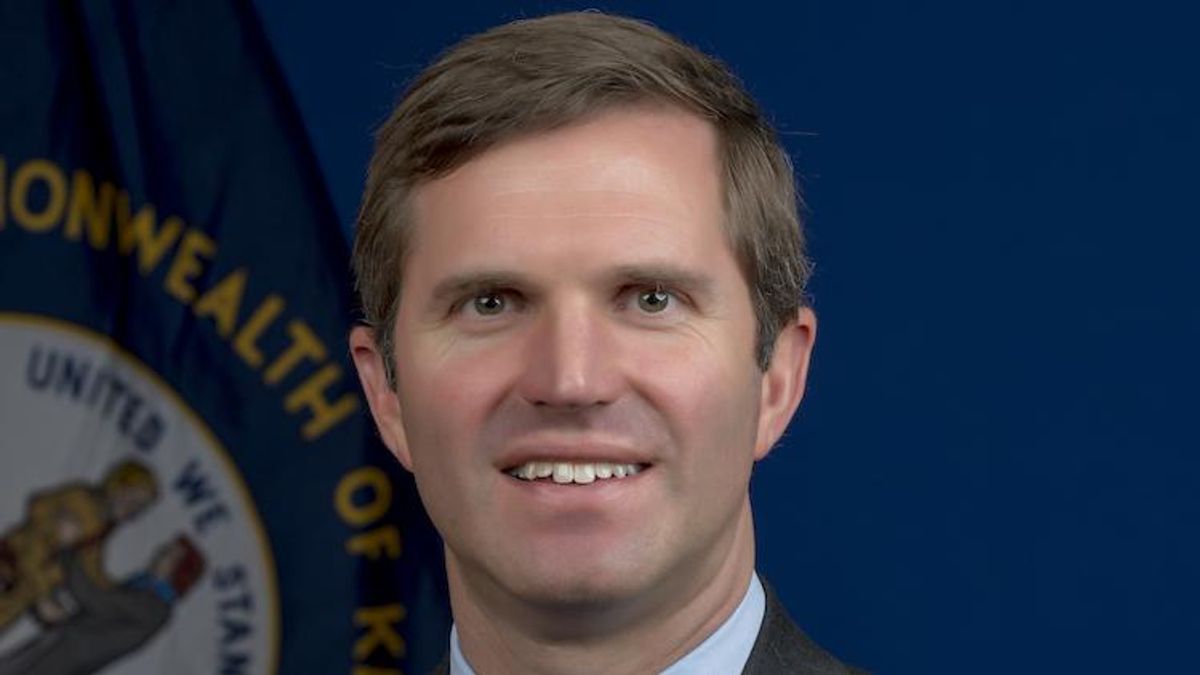After pressure from Kentucky Republicans, Democratic Gov. Andy Beshear is backtracking his support for gender-affirming care.
Keep up with the latest in LGBTQ+ news and politics. Sign up for The Advocate's email newsletter.
The Republican Party of Kentucky said in a statement last week that Beshear's administration is "out of control" for trying “to force Kentucky taxpayers to pay for transgender surgeries for convicted criminals.” Beshear responded at a press conference Thursday, caving to conservatives' outrage by claiming he is against those incarcerated “receiving better coverage and health care than a law-abiding citizen.”
“I recognize that LGBTQ inmates may be at a higher risk for violence than other inmates," Beshear said. "However, convicted felons do not have the right to have any and all medical surgeries paid for entirely by tax dollars, especially when it would exceed the type of coverage available to law-abiding citizens in the private sector.”
Beshear is incorrect — when the state incarcerates a person, it becomes legally responsible for their health care, according to the U.S. Marshals Service. Prisoners are legally entitled to health care, as the U.S. Supreme Court ruled in the 1976 case Estelle v. Gamble that ignoring a prisoner's medical needs violates the Eighth Amendment, which forbids cruel and unusual punishment.
Gender-affirming care sometimes and sometimes doesn't include affirmation surgery. While such surgery can seem cosmetic, it can be crucial to its recipients' mental health and overall well-being. TheAmerican Medical Association, theAmerican Psychiatric Association, theAmerican Academy of Pediatrics, theAmerican Academy of Child & Adolescent Psychiatry, theWorld Medical Association, and theWorld Health Organization all agree that gender-affirming care isevidence-based and medically necessary.
Beshear also said at the conference that "the Department of Corrections is just trying to get this right under federal law, and it appears at least a little unclear to me what’s required under federal law." This is also incorrect — even the official policy of the first Trump administration was to provide inmates with gender-affirming care, in compliance with U.S. law. Several states have also upheld the right of inmates to receive gender-affirming care in recent years.
Republicans spent around $215 million on attack ads against the trans community during the presidential election. The television advertisements were mostly repeated in battleground states — airing heavily during sports games — pushing false claims about gender-affirming care and transgender athletes.
There are approximately 1.6 million people in the U.S. ages 13 and up who identify as transgender, according to the Williams Institute, accounting for just 0.6 percent of the overall population. There are about 5,000 incarcerated transgender people in the country, according to a report fromNBC News, accounting for just 0.4 percent of the 1,230,100 inmates recorded nationally in 2021.
"For Republican lawmakers to get upset that we’re going to a Republican attorney general to try to get this opinion there on what is required, that seems a little silly," Beshear admitted. "It seems like just wanting to pick a fight and argue instead of to say, ‘Let’s work together, let’s figure out what’s required, let’s figure out what’s reasonable.’”















































































